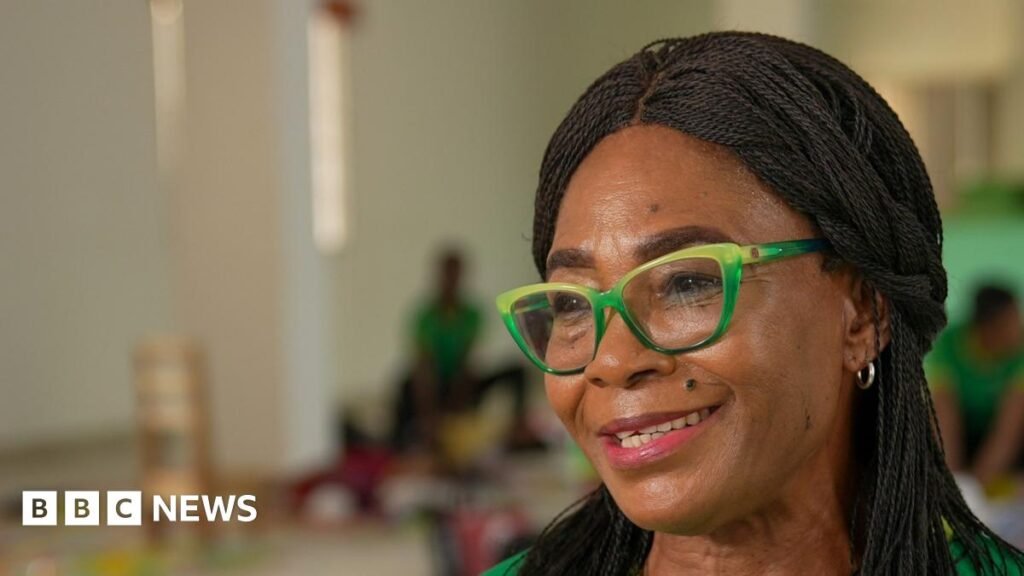Ms. Nweke is not alone in her mission to dispel myths and improve care.
The Oscar Project, a charity aimed at improving the diagnosis and treatment of neonatal jaundice, recently launched in Lagos.
The project is named in honor of the British advocate for the disabled Vietnamese Oscar Anderson, whose untreated jaundice caused cerebral palsy.
“We are equipping primary, secondary and tertiary care facilities with equipment to treat jaundice, primarily light boxes, as well as detection and screening equipment,” Toyin Saraki, who led the launch, told the BBC.
Project Oscar, supported by healthcare firm Reckitt, is training 300 health workers in Lagos. The hope in the first year is to reach 10,000 mothers, screen 9,000 babies and introduce new protocols to try to prevent cerebral palsy in babies with jaundice.
In a country with an overstretched public health system, the government has little to say about the disorder, although it has praised the aims of Project Oscar.
Doctors say that treating jaundice in newborns is much cheaper than the cost of lifelong care.
First launched in Vietnam in 2019, Project Oscar has helped around 150,000 children in the Asian country.
Mr Anderson, 22, says he wants to prevent what he went through happening to other children.
“People with disabilities should not be underestimated,” he tells the BBC.
It works to ensure that every newborn is screened for neonatal jaundice and, with the support and courage of mums, midwives and health professionals, to ensure better understanding and faster treatment.
However, achieving this is an extremely ambitious goal in Africa’s most populous country, where thousands of babies are born with neonatal jaundice every year.
Despite this, Mr. Anderson is determined to defy the odds.
“The work will not stop until every baby is protected against neonatal jaundice,” he says.

